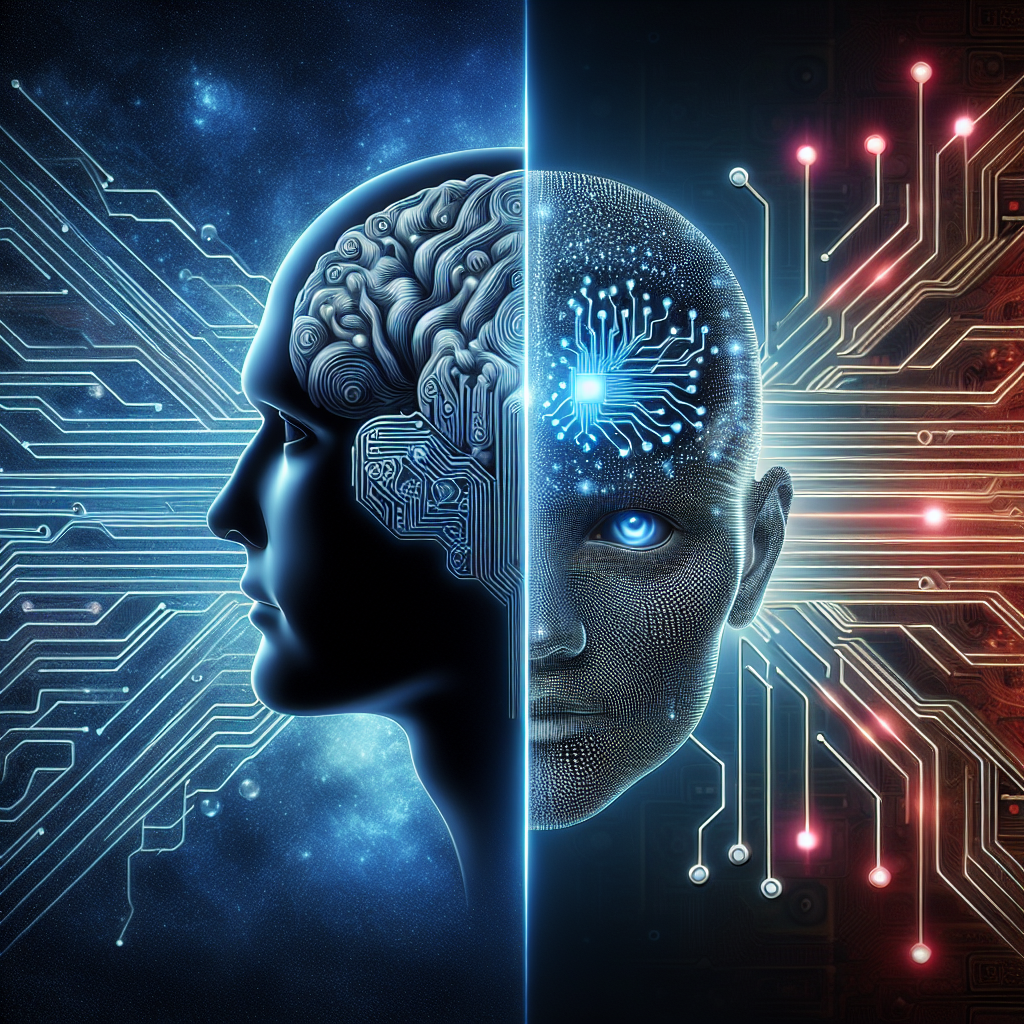Artificial General Intelligence (AGI) has been a topic of interest and debate in the field of artificial intelligence for many years. AGI is defined as a form of intelligence that is capable of understanding and learning any intellectual task that a human being can. This means that AGI has the ability to reason, learn from experience, understand complex ideas, and solve problems in ways that are indistinguishable from human intelligence.
In this article, we will explore the differences between AGI and human intelligence, what sets AGI apart from other forms of artificial intelligence, and address some frequently asked questions about AGI.
AGI vs. Human Intelligence: What Sets Artificial General Intelligence Apart
1. Learning Capacity: One of the key differences between AGI and human intelligence is the learning capacity. While humans have the ability to learn and adapt to new information and experiences, AGI has the potential to learn at a much faster rate. AGI systems can process vast amounts of data and information quickly, allowing them to learn and improve their performance in a short amount of time.
2. Problem-Solving Abilities: AGI systems are designed to be able to solve complex problems in a way that is similar to human intelligence. These systems can analyze information, identify patterns, and make decisions based on the data they have collected. This allows AGI systems to tackle a wide range of problems and tasks, from simple calculations to more complex challenges.
3. Adaptability: Another key difference between AGI and human intelligence is adaptability. AGI systems have the ability to adapt to new situations, environments, and tasks quickly and efficiently. This means that AGI systems can learn from their mistakes, adjust their strategies, and improve their performance over time.
4. Creativity: While human intelligence is often associated with creativity and innovation, AGI systems also have the potential to be creative. AGI systems can generate new ideas, solutions, and approaches to problems, making them valuable tools for innovation and discovery.
5. Autonomy: AGI systems have the potential to operate autonomously, without the need for human intervention. These systems can make decisions, take actions, and solve problems on their own, making them valuable assets in a wide range of industries and applications.
Frequently Asked Questions About AGI
Q: What are the potential applications of AGI?
A: AGI has the potential to revolutionize a wide range of industries and applications, including healthcare, finance, transportation, and entertainment. AGI systems can be used to automate tasks, improve decision-making processes, and enhance productivity and efficiency.
Q: How close are we to achieving AGI?
A: While AGI is still a long way off, researchers and developers are making significant progress in the field of artificial intelligence. There are ongoing efforts to develop AGI systems that are capable of learning and reasoning in ways that are similar to human intelligence.
Q: What are the ethical implications of AGI?
A: The development and deployment of AGI raise a number of ethical considerations, including issues related to privacy, security, and accountability. It is important for researchers and developers to consider these implications and work towards creating AGI systems that are safe, secure, and ethical.
Q: Will AGI replace human workers?
A: While AGI has the potential to automate a wide range of tasks and jobs, it is unlikely to completely replace human workers. AGI systems are more likely to augment human intelligence, working alongside humans to improve productivity and efficiency.
Q: How can we ensure the responsible development of AGI?
A: It is important for researchers, developers, and policymakers to work together to ensure the responsible development of AGI. This includes creating guidelines and regulations for the use of AGI, building in safeguards and fail-safes to prevent misuse, and promoting transparency and accountability in the development and deployment of AGI systems.
In conclusion, AGI represents a significant advancement in the field of artificial intelligence, with the potential to revolutionize a wide range of industries and applications. While AGI is still a long way off, researchers and developers are making significant progress in the field, bringing us closer to the realization of truly intelligent machines. By addressing the ethical implications of AGI, ensuring responsible development, and promoting transparency and accountability, we can harness the power of AGI to create a better future for all.

